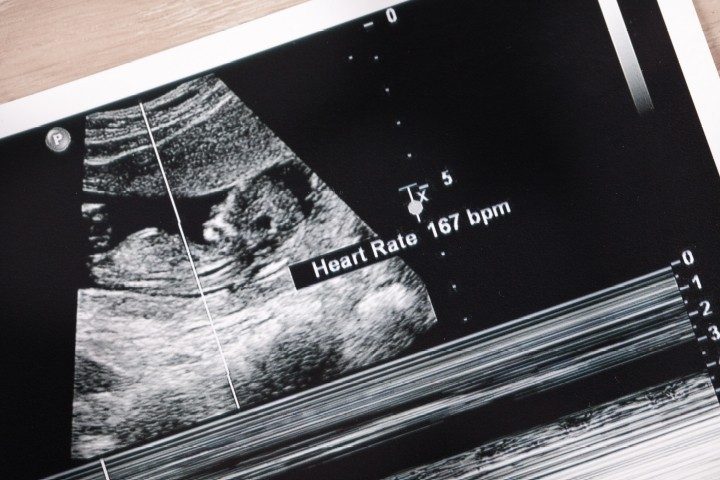
A bill that would ban abortions as early as six weeks into a pregnancy is almost certain to become law in Texas. Senate Bill 8, also known as the The Texas Heartbeat Act, has been passed by the Texas Senate and House of Representatives and is now headed to Governor Greg Abbott’s desk, where it is expected to be signed as early as Monday.
Proponents of the legislation claim that a fetal heartbeat can often be detected as early as six weeks into a pregnancy, while pro-abortion forces claim that those early heartbeats are actually no more than “electrically induced flickering” and not an actual heartbeat.
The bill makes exceptions for abortions in case of a medical emergency.
“Can’t wait to sign it,” Abbott tweeted while thanking the bill’s co-sponsors, Representative Shelby Slawson (R-Stephenville) and Senator Bryan Hughes (R-Mineola), who authored the bill, for their leadership on bringing the legislation to fruition.
Slawson initially introduced the bill in the Senate chamber with a personal story of her mother who received a “dim prognosis of an abnormally developing baby,” and the mother who chose to carry that child to term. “And now 44 years and two days later, that little baby girl is standing in this chamber, her heart beating as strongly and as rapidly as it did all those years ago … as she lays before you Senate Bill 8, the Texas Heartbeat Act.” Slawson said.
Hughes, the bill’s other co-author, described the bill in bare-bones fashion: “This bill will say when there’s a heartbeat detectable, that little baby is going to be protected from abortion.”
But the bill is a little more complicated than that. Unlike previous efforts at so-called heartbeat legislation, which have been passed in numerous states only to be struck down by federal courts, the Texas bill forbids the state from enforcing the ban, instead opting to make it possible for private citizens to sue abortion providers or anyone complicit in providing an abortion after a fetal heartbeat is detected.
Texas Right to Life, the oldest and largest pro-life organization in the state, called the Texas Heartbeat Act “the strongest pro-life bill passed by the legislature since Roe V. Wade.”
“When passed into law, the Texas Heartbeat Act will abolish elective abortions as early as six weeks, when the pre-born child’s heartbeat is detectable by the most common methods,” said a statement from Texas Right to Life. “The Texas Heartbeat Act is novel in approach, allowing for citizens to hold abortionists accountable through private lawsuits. No heartbeat law passed by another state has taken this strategy. Additionally, this bill does not punish women who obtain abortions.”
Predictably, pro-abortion groups came out quickly against the legislation. Abortion advocacy group NARAL couldn’t help but blame former president Donald Trump for the legislation, claiming that “the anti-choice supermajority on the U.S. Supreme Court, solidified by Trump” is causing states to now push legislation that attacks “reproductive freedom.”
“Anyone who believed that the defeat of Donald Trump would check the worst impulses of an extreme anti-choice GOP need look no farther than my home state of Texas to be proven wrong,” said NARAL President Ilyse Hogue. “With their lack of power at the federal level, anti-choice lawmakers across the country are ramping up their attacks on reproductive freedom at the state level and cruelty appears to be the point.”
While Hogue’s extremist pro-abortion views may be offensive to some, at least she appears to understand how federalism works. Some of her pro-abortion colleagues are coming to similar realizations.
“2021 is on track to become the most devastating anti-abortion state legislative session in decades,” said Elizabeth Nash and Lauren Cross of the pro-abortion Guttmacher Insititute in a report released in late April.
“Since January, there have been 536 abortion restrictions, including 146 abortion bans, introduced across 46 states,” the report complained. “A whopping 61 of those restrictions have been enacted across 13 states, including eight bans.”
Soon, the Texas will add to those numbers with its statewide heartbeat bill. With Democrats in charge of Washington, D.C., until at least 2022, this is what the fight to end the scourge of abortion will look like for a while — states and localities stepping up to do what they can until the horribly flawed landmark case of Roe V. Wade can finally be overturned.




